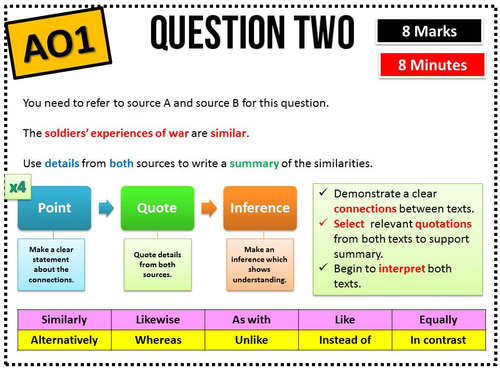Sometimes it can feel like the exam boards are out to get you when you’re studying for your GCSEs and many students tend to feel like certain exam boards are harder than others. In spite of the fact that they all have to conform to the National Curriculum, there are definitely some variations between the courses that each exam board offers.
1. AQA are harder for the inattentive students
One of the key ways in which exam boards differ is in their exam layouts. The new History GCSE from OCR is split up into five different topics across three exams with each topic being worth 20% of the overall grade. Whereas AQA has four topics split across two exams with each topic being worth 25% of the overall grade. This is a key difference as OCR has a greater volume of content that you need to learn, however AQA requires that you learn fewer topics but in more detail. Depending on how good you are at remember details, this could make the AQA course a lot harder for some students.

2. It is hard to revise for AQA due to lack of past papers
Another way in which exam boards differ is the amount of support that the exam boards offer to both students and teachers. AQA recently locked down their past papers to students which means that unless you have a teacher to access them for you, it is very difficult to find practice question resources. This can make the exams much more difficult as you’re unable to have as much practice with the exam style prior to sitting the actual exam. Similarly, it means that you’re unable to gauge your progress throughout your revision and it can be hard to target the areas you’re really struggling with.

3. The different styles of question can affect success
Exam boards also differ in the style of questions that the ask you. For example, one of the Edexcel GCSE RE exams has two 15 mark questions and two 9 mark questions which are both based around evaluation and explanation. However, the OCR course only features two 12 mark questions meaning that there are less long answer questions that you have to complete during the exam and, unlike the Edexcel course, it also allows you to gain marks for including your personal opinion.

Of course, the differences between exam boards are extremely limited when you look at each course they offer in detail. Whilst certain courses may seem harder due to your personal strengths and weaknesses, they are highly standardised by the Government to ensure that no student is at a disadvantage when it comes to examinations. Many schools choose the exam boards which they believe will be the best fit for them, whether that be due to the topics they’ve taught in the past or the resources available. It is extremely unlikely that your grades will suffer at all just because you took a different exam board to someone else.

